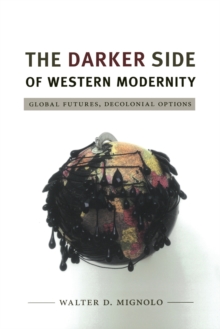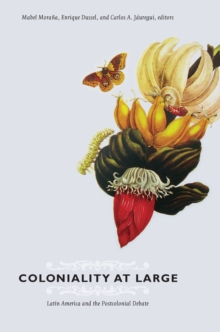
Avant-Garde, Internationalism, and Politics : Argentine Art in the Sixties Hardback
by Andrea Giunta
Part of the Latin America Otherwise series
Hardback
Description
The 1960s were heady years in Argentina. Visual artists, curators, and critics sought to fuse art and politics; to broaden the definition of art to encompass happenings and assemblages; and, above all, to achieve international recognition for new, cutting-edge Argentine art.
A bestseller in Argentina, Avant-Garde, Internationalism, and Politics is an examination of the 1960s as a brief historical moment when artists, institutions, and critics joined to promote an international identity for Argentina's visual arts.
The renowned Argentine art historian and critic Andrea Giunta analyzes projects specifically designed to internationalize Argentina's art and avant-garde during the 1960s: the importation of exhibitions of contemporary international art, the sending of Argentine artists abroad to study, the organization of prize competitions involving prestigious international art critics, and the export of exhibitions of Argentine art to Europe and the United States.
She looks at the conditions that made these projects possible-not least the Alliance for Progress, a U.S. program of "exchange" and "cooperation" meant to prevent the spread of communism through Latin America in the wake of the Cuban Revolution-as well as the strategies formulated to promote them.
She describes the influence of Romero Brest, prominent art critic, supporter of abstract art, and director of the Centro de Artes Visuales del Instituto Tocuato Di Tella (an experimental art center in Buenos Aires); various group programs such as Nueva Figuracion and Arte Destructivo; and individual artists including Antonio Berni, Alberto Greco, Leon Ferrari, Marta Minujin, and Luis Felipe Noe.
Giunta's rich narrative illuminates the contentious postwar relationships between art and politics, Latin America and the United States, and local identity and global recognition.
Information
-
Available to Order - This title is available to order, with delivery expected within 2 weeks
- Format:Hardback
- Pages:432 pages, 63 illustrations (22 color-16 pg insert, 41 b&w)
- Publisher:Duke University Press
- Publication Date:16/07/2007
- Category:
- ISBN:9780822338772
Other Formats
- Paperback / softback from £25.25
Information
-
Available to Order - This title is available to order, with delivery expected within 2 weeks
- Format:Hardback
- Pages:432 pages, 63 illustrations (22 color-16 pg insert, 41 b&w)
- Publisher:Duke University Press
- Publication Date:16/07/2007
- Category:
- ISBN:9780822338772










